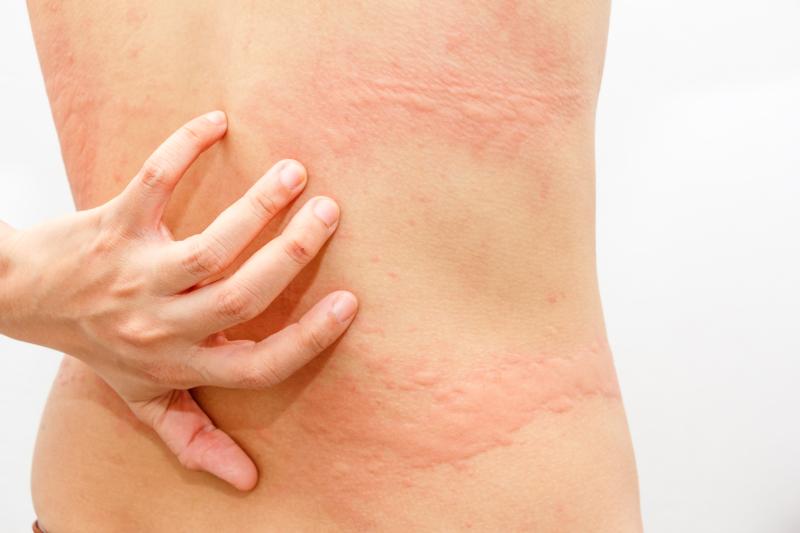
Itch contributes a substantial psychological burden among patients with dermatological conditions, a new study has found.
The study included 3,530 dermatological patients and 1,094 controls. There were 1,613 itchy patients (mean age, 47.2±17.5 years; 56.3 percent female) and 1,006 itchy controls (mean age, 40.5±13.3 years; 64.6 percent female). Stratifying according to dermatological conditions, researchers found that itch was most common in those with prurigo and related conditions (88.9 percent) and atopic dermatitis (86.0 percent).
Depression was identified in 14.1 percent and 5.7 percent of patients and controls with itch, respectively, as opposed to only 5.7 percent and 3.2 percent of their counterparts without itch. Multiple logistic regression found a significant link between depression and itch (odds ratio [OR], 1.53, 95 percent confidence interval [CI], 1.15–2.02).
Moreover, suicidal ideation was reported in 15.7 percent and 18.6 percent of patients and controls with itch, corresponding to a statistically significant increase in risk over those without itch (OR, 1.27, 95 percent CI, 1.01–1.60). The same was true for economic difficulties (OR, 1.24, 1.10–1.50).
Notably, while anxiety appeared to be more common among patients (21.4 percent vs 12.3 percent) with vs without itch, this trend was not sustained in logistic regression analysis. In controls, itch had no apparent effect on the prevalence of anxiety (8.1 percent vs 8.8 percent).